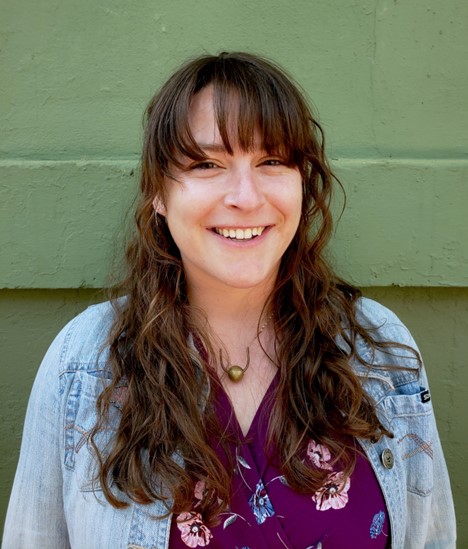I am the Social Media Lead for the Communication Committee. I was excited to learn about this role because I am interested in, and research, implementation science. The dissemination of research and making communication and community resources effective and efficient is a passion of mine. ANCDS is a small, special community, and to be part of creating the online version of that was exciting. I hope to meet member and committee needs by using social media to support, celebrate, and educate!
2. Why and how did you get started with ANCDS? What was the student fellow experience like for you?My Ph.D. mentor is a member of ANCDS and encouraged me to apply for the fellowship, which then led to me attending the conference and holding a membership. I loved the conference and the energy that was in the room. I have always felt that I was in a small group in my Master’s program being interested in adults and neurogenic disorders, so to find a community that specialized in that is so comforting.
3. Tell us about your upcoming position and what you are looking forward to in that position. Tell us about your area of research and any project(s) you are working on now.
I will be a Polytrauma fellow with the Department of Veterans Affairs. I am most excited to learn the skill of neuroimaging to complement my research interests. I am broadly interested in implementation science and cognitive rehabilitation — specific to TBI. I am currently wrapping up my dissertation project that was funded by the Brain Injury Association of America. This project has two broad goals: the first is investigating how to promote the implementation of health-education materials related to fall prevention to older adults with and without a history of traumatic brain injury. The second is understanding how participants would like health-education materials — specific to prevention — and why participants feel this way. This has been an extremely rewarding and inspiring project, and I look forward to continuing this work.
4. Why did you decide to become an SLP?
I have always loved the brain, but when I was trying to decide what I wanted to do when I entered college, I explored all of the options that didn’t involve 12 years of schooling. However, the joke is on me because I still was in school for 12 years. I saw the SLP major had neuroanatomy and neuroscience courses, and I enrolled in the major. After my first neuroanatomy class, I was smitten. The brain is remarkable! It consistently and constantly impresses me and amazes how different each person is and their individual functioning — even more curious is recovery from brain injuries.
I had amazing mentors along the way in my undergraduate and Master’s programs who also inspired me immensely. At first, I thought I didn’t need to go back for my Ph.D. because I was in a rural area for my first SLP position and I filled a role that provided education and training for staff, fellow colleagues, and even networking with other community hubs to provide more access to care that SLPs could provide. I love thinking about how to make accessible, efficient, and effective care that is enjoyable and beneficial to adults with neurogenic or neuropathological disorders, as well as the clinicians treating them! However, I ultimately returned for my PhD because I felt I would make more of a difference in direct research.

